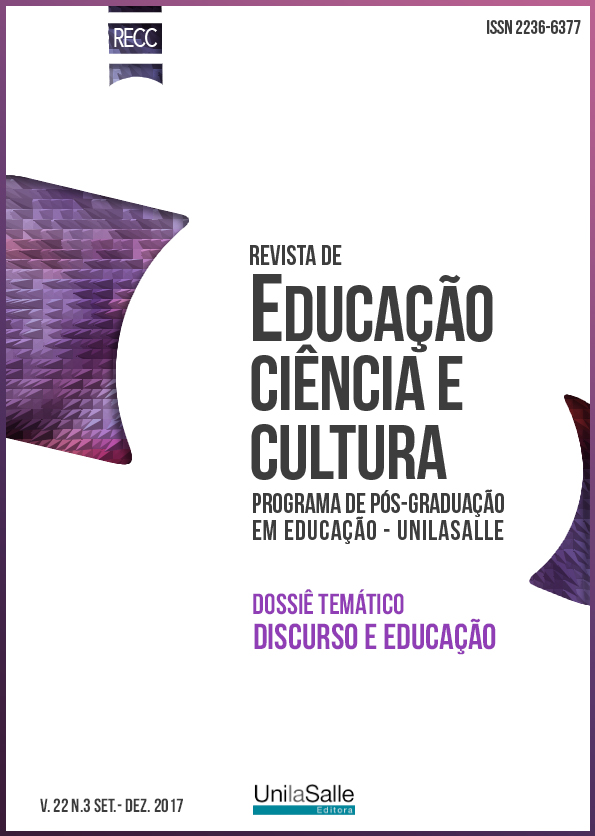Dance and memory development of children with Down’s syndrome.
DOI:
https://doi.org/10.18316/recc.v22i3.3962Keywords:
Dance, Down’s Syndrome, Historical-cultural Theory.Abstract
This article is based on an intervention research with and without Down´s syndrome children, which happened in 20 meetings, lasting 60 minutes through ludo-pedagogical activities. We collect the data through observations and filming the meetings and present the description and analysis of the data, which was carried out based on the assumptions of historical-cultural theory, focusing on activity designed to teach subjects to use material auxiliary objects in the memorization process. We justify the importance of this work, because it shows the construction of differentiated teaching methodologies, from the use of cultural objects (material and symbolic), with the intention of contributing, through the dance activity for the school education changes, especially the transformations of the subjects with intellectual disability and, thus, make possible advances in school education in an inclusive direction.
Downloads
Published
Issue
Section
License
Authors must submit their manuscripts to be published in this journal agree with the following terms:Authors maintain the copy rights and concede to the journal the right of first publication, with the paper simultaneously licensed under the License Creative Commons attribution that permits the sharing of the paper with recognition of authorship and initial publication in this journal.
Since the articles are presented in this journal of public access, they are of free use, with their own attributions for educational and non-commercial purposes.
The Periodic Journal of Education, Science and Culture in http://www.revistas.unilasalle.edu.br/index.php/Educacao was licensed with a Creative Commons - Attribution - Noncommercial 3.0 Not Adapted.


